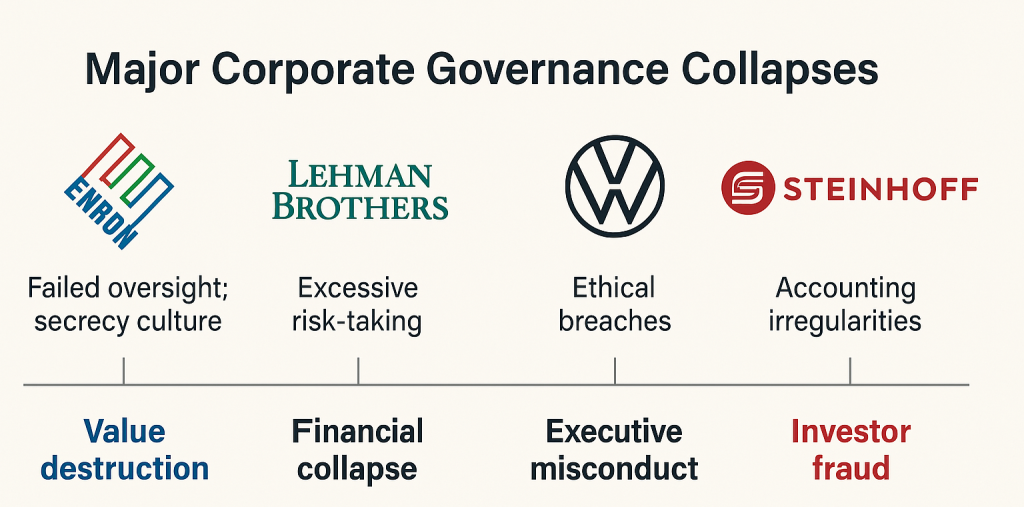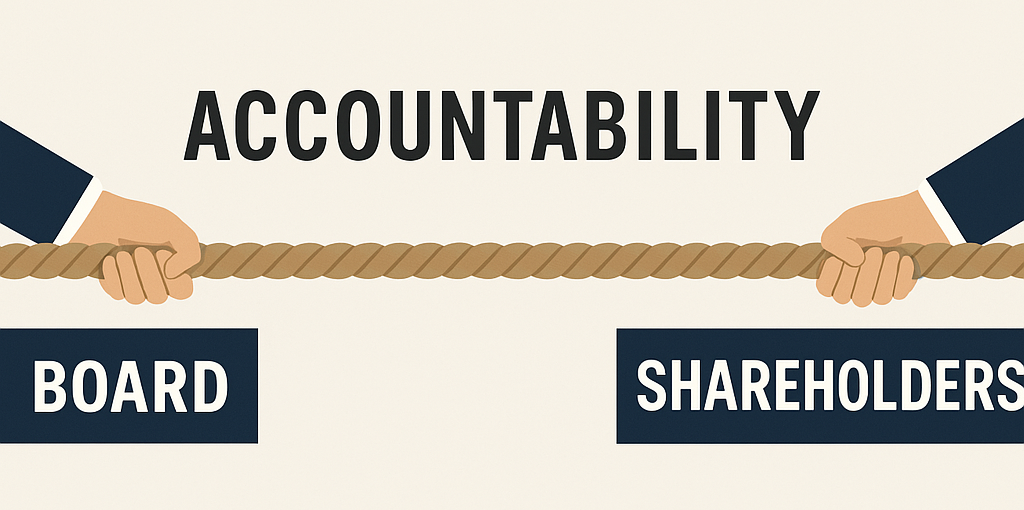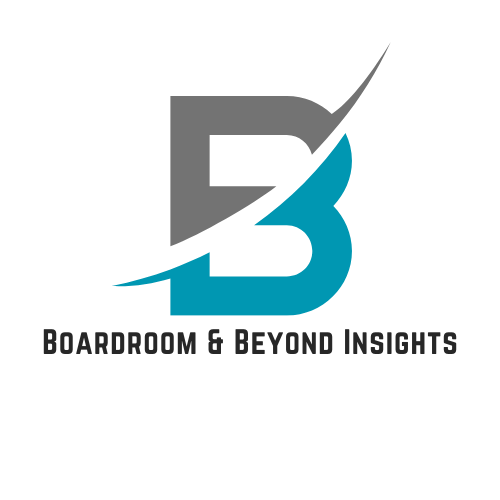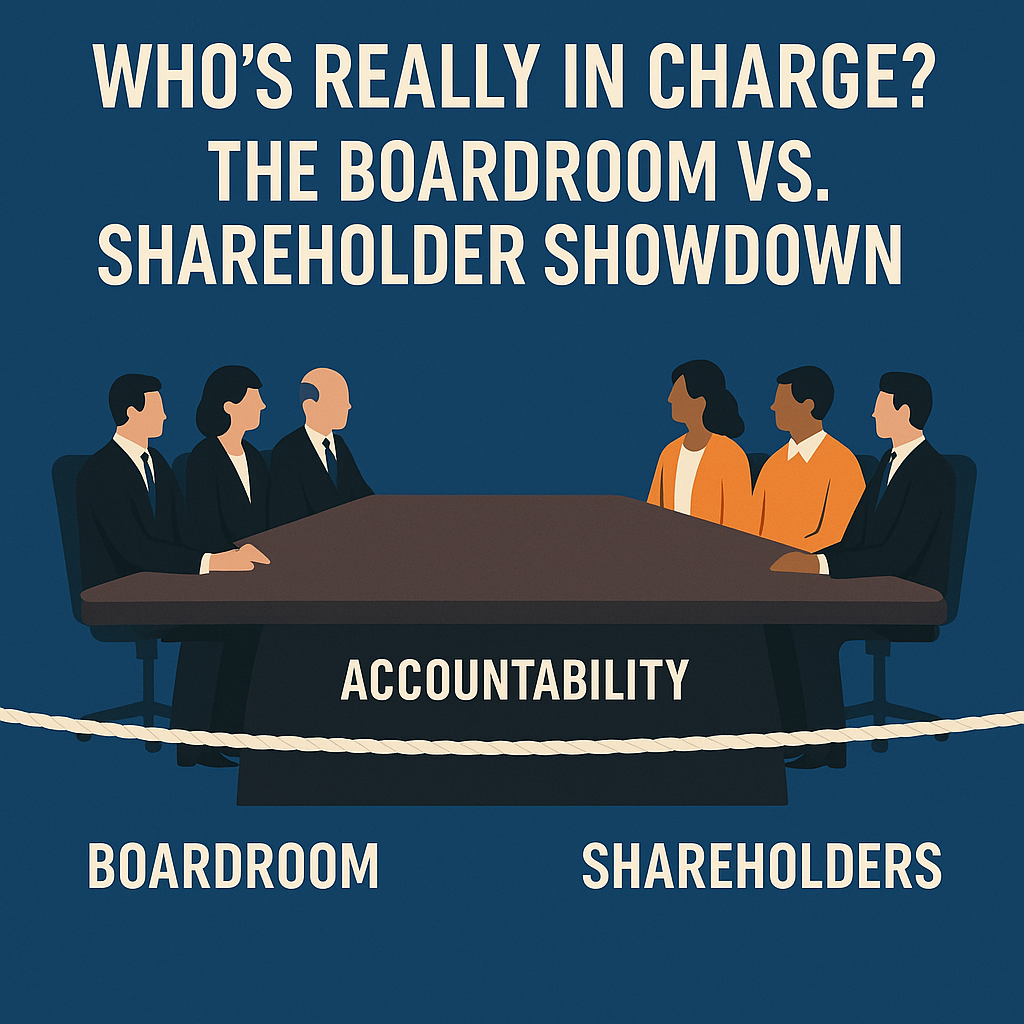Introduction: Power, Accountability, and the Corporate Chessboard
Corporate governance sits at the intersection of authority and accountability. At its core lies a critical tension: who ultimately governs the corporation, the board or its shareholders? Traditionally, shareholders appoint directors to oversee management, ostensibly acting in their best interests, this power dynamic is anything but static. Two foundational theories provide opposing perspectives:
- Agency Theory, which emphasizes the need for directors to maximize shareholder value.
- Stewardship Theory, which highlights managers’ roles in safeguarding shareholder interests.
Yet, as global failures have shown, theory often unravels in practice.
This article explores the delicate balance of power between the boardroom and shareholders and the governance breakdowns that follow when that balance tips too far in either direction. We anchor our analysis in landmark global failures while examining what emerging markets like Nigeria can learn as they strengthen corporate governance frameworks.
Reframing the Power Dynamics: Beyond the Board vs. Shareholder Binary
The interplay between the board, management, and shareholders shapes an organization’s decision-making landscape. While boards have a fiduciary duty to act in the company’s best interests, shareholders, as the ultimate owners, also seek influence over strategic directions. Today’s corporations face increasing scrutiny from not just shareholders, but activist investors, regulators, institutional funds, and the public. The emergence of stewardship reports has been a significant development in this regard, enhancing transparency and accountability, and providing insights into the board’s decision-making processes.
However, as evidenced by notable corporate collapses, the balance of power can easily tilt, leading to disastrous outcomes. Global failures, from Enron to Volkswagen, have reminded us that unchecked authority, whether in the boardroom or behind closed shareholder meetings, can have profound consequences. Nowhere is this tension more critical than in emerging markets like Nigeria, where evolving governance standards are shaping the next generation of corporate leadership
Global Failures That Redefined Governance Norms

- Enron Scandal (USA, 2001): The Failure of Oversight
The Enron case serves as a cautionary tale for corporations worldwide. The board of directors failed to exercise its oversight responsibilities, ignoring red flags raised by internal and external stakeholders. Instead of holding management accountable, the board allowed a culture of secrecy and unethical practices to flourish. This disconnect between the board and shareholders raises critical questions: Who should have the ultimate authority in decision-making? Should the board act independently, or should shareholders exert more influence over governance practices?1
- Lehman Brothers (USA, 2008): Risk Without Restraint
Lehman’s board prioritized growth over prudence. It lacked the technical competence and independence to challenge management’s exposure to toxic assets. The aftermath reinforced the global call for risk governance and board expertise, especially in complex industries.2
- Volkswagen (Germany, 2015): Ethics at the Margins3
The Dieselgate scandal showed how even well-regarded boards can fall short in policing culture and ethics. The board’s insular structure and deference to management allowed systemic deception. This failure accelerated governance reforms across the European Union, including board diversity mandates and whistleblower protections.4
- Steinhoff (South Africa, 2017): Lessons for Emerging Markets
Closer to Nigeria, the Steinhoff accounting scandal exposed weak board oversight, inflated asset values, and regulatory blind spots. It revealed the urgent need for cross-border governance mechanisms, especially for multinationals operating across jurisdictions.5
Each of these failures underscored the importance of a robust governance framework that balances the interests of both the board and shareholders. These cases share a common thread: power without accountability is dangerous, regardless of geography or sector.
Implications for Nigeria and Emerging Markets
Nigeria’s corporate sector, increasingly global in ambition, finds itself grappling with these same tensions, but in a uniquely local context. Nigeria, like many emerging economies, is undergoing a corporate governance transformation. As capital markets mature and foreign investment grows, trust becomes a currency, and governance its foundation.
While governance codes have evolved and regulatory bodies like the Securities and Exchange Commission and Financial Reporting Council of Nigeria have become more active, many boards remain constrained by close ownership structures, founder dominance, or politically influenced appointments. Shareholder activism is growing, but still underdeveloped.
Yet change is on the horizon. Stewardship codes, increased scrutiny from foreign investors, and rising expectations from younger, reform-minded professionals are beginning to shift the culture of boardroom leadership in Nigeria.
The challenge now is implementation, not just compliance on paper, but a true shift in mindset: from symbolic oversight to strategic governance.
Finding the Balance: A Framework for Shared Accountability

The lesson from these failures is not that boards should be micromanaged by shareholders, nor that shareholder primacy guarantees good governance. The answer lies in structured, transparent, and reciprocal accountability. Key practices for getting the balance right include:
- Enhanced Transparency: Regular stewardship reports and open communication can bridge gaps between shareholders and the board. Leading markets now require detailed disclosures of how boards make decisions, manage risk, and interact with shareholders, promoting trust and clarity.
- Board Independence & Competence: Directors must be independent, not just in form, but in mindset. Ongoing education, industry expertise, and ethical fortitude are essential.
- Robust Regulatory Oversight: Implementing stricter regulations can motivate boards to prioritize ethical practices and shareholder interests.
- Active and Informed Shareholders: Encouraging shareholders to take an active role in governance can lead to better oversight and accountability. Shareholders should go beyond annual meetings, engaging in stewardship, ESG assessments, and holding boards accountable through strategic voting and dialogue.
So, Who Should Be in Charge?
Perhaps the question is not who should be in charge, but how power should be shared. Effective governance is not about domination by either party. It’s about healthy tension, where boards are empowered but not unaccountable, and shareholders are active but not adversarial.
This balance demands more than policy, it demands a shift in mindset. Boards must embrace transparency not as a regulatory checkbox but as a strategic asset. Shareholders must move beyond the role of passive investors, stepping into a partnership model that prioritizes dialogue over directives.
Conclusion: The Path Forward
In the age of stakeholder capitalism, companies must think beyond profit. The boardroom is no longer a place for ceremonial meetings, it’s a strategic cockpit where trust, information, and judgment intersect. The question of who truly holds power in corporate governance remains complex, however, lessons drawn from high-profile failures like Enron highlight the critical need for a balanced relationship between the board and shareholders. A strong, independent board is essential, but it must operate with transparency and accountability to safeguard shareholder interests. The most resilient companies do not just have strong boards or engaged shareholders, they have a governance ecosystem built on mutual respect, clear accountability, and ethical leadership. The failures of the past decade serve as a blueprint for what to avoid. The future must be built on trust.
Whether in New York, London, or Lagos, the question remains the same: In a world of complex stakeholders and shifting expectations, how do we govern not just for control, but for continuity? The answer, increasingly, is shared leadership, where the boardroom and the shareholders stop pulling in opposite directions, and instead build toward common ground.
References
- Dibra, R. (2016). Corporate Governance Failure: The Case of Enron and Parmalat. European Scientific Journal, ESJ, 12(16), 283. https://doi.org/10.19044/esj.2016.v12n16p283 ↩︎
- Wiggins, Rosalind Z.; Piontek, Thomas; and Metrick, Andrew (2019) “The Lehman Brothers Bankruptcy A: Overview,” Journal of Financial Crises: Vol. 1 : Iss. 1, 39-62. Available at: https://elischolar.library.yale.edu/journal-of-financial-crises/vol1/iss1/2 ↩︎
- https://www.bbc.com/news/business-34324772 ↩︎
- https://www.cpajournal.com/2019/07/22/9187/ ↩︎
- Van der Linde KE “The Steinhoff Corporate Scandal and the Protection of Investors Who Purchased Shares on the Secondary Market” PER / PELJ 2022(25) – DOI http://dx.doi.org/10.17159/1727-3781/2022/v25i0a14876 ↩︎




Leave a Reply